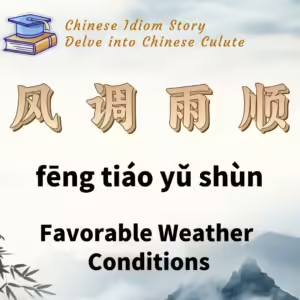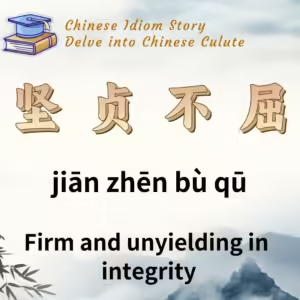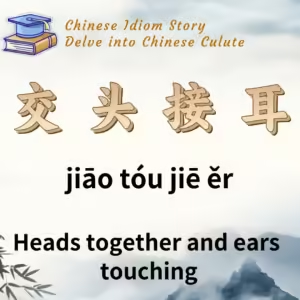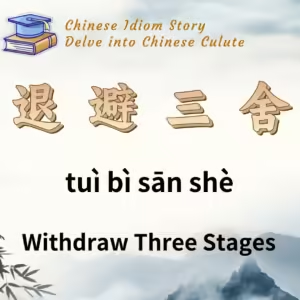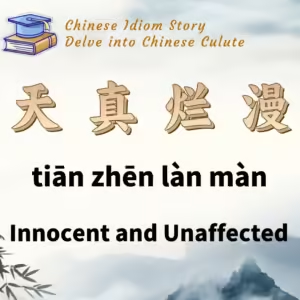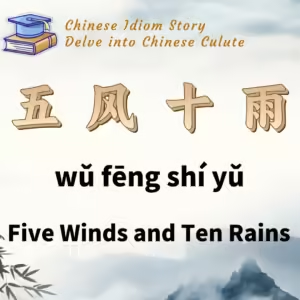
Chinese Idiom: 五风十雨 (Wu Feng Shi Yu)
English Translation: Five Winds and Ten Rains
pīn yīn: wǔ fēng shí yǔ
Idiom Meaning: This idiom symbolizes ideal weather conditions for agriculture and a year of good fortune with proper rain and wind, ensuring a bountiful harvest.
Historical Source: Han Dynasty, Wang Chong’s Lun Heng (《论衡·是应》) and Ming Dynasty, Tang Xianzu’s poem Wen Duxiang Ke Yushi (《闻都城渴雨时苦摊税》).
Idiom Story
During the Ming Dynasty, Tang Xianzu, a renowned playwright and poet, wrote a poem reflecting the harsh conditions faced by people during a drought in Beijing. The city experienced a severe lack of rain, which led to widespread suffering among the populace. The ruling authorities, taking advantage of the situation, imposed heavy taxes, exacerbating the plight of the common people.
Tang Xianzu’s poem sarcastically references a joke from the Five Dynasties period. According to the joke, when Beijing was suffering from drought, the Minister of the Central Secretariat, Xu Zhihao, inquired about the lack of rain in the capital. A musician named Shen Jian Gao humorously replied that the rain was afraid of the taxes and thus avoided the capital.
Inspired by this anecdote, Tang Xianzu penned his poem to criticize the oppressive taxation and the authorities’ exploitation of the drought. The poem highlights the irony of the situation and mocks the ruling class’s greed and negligence:
五风十雨不为褒,薄衣焚香沾御袍。
当知雨亦愁抽税,笑语江南申渐高。
Translation:
“Five winds and ten rains are not praiseworthy; even the emperor’s robes are stained by the smoke of the incense burnt by the people in their thin clothes. It is as if the rain itself fears taxes and avoids the capital, as Shen Jian Gao jested in Jiangnan.”
In this poem, Tang Xianzu uses the term “五风十雨” to symbolize the ideal weather conditions that are ironically not helping the people due to the harsh taxation, thus critiquing the rulers and their disregard for the people’s suffering.

